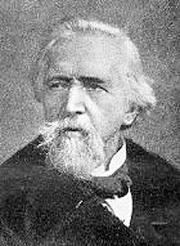On this date in 1817, George Jacob Holyoake was born to a poor family in England. The young foundry worker attended classes in his free time, becoming a mathematics teacher. By 1840, Holyoake was a lecturer at the Worcester Hall of Science. Best-known for coining the term “secularist,” Holyoake dedicated his life to freethought. He was sentenced to six months in jail for saying England was “too poor” to support a God and should consider retiring him. He founded and edited a number of freethought journals, including Reasoner (1846-50), Leader (1850) and Secular Review (1876).
Holyoake wrote more than 160 pamphlets and works, including the books Origin and Nature of Secularism (1896), his autobiography, Sixty Years of an Agitator’s Life (1892), and the two-volume Bygones Worth Remembering (1905). He was president of the British Secular Union for many years, and became the first chair of the Rationalist Press Association.
As an Owenite, Holyoake was an ardent reformer who put causes over personal gain, helped work for women’s rights, political and educational reform, and personally aided refugees fleeing persecution. Contemporary American agnostic Robert G. Ingersoll wrote on Aug. 8, 1888: “There is no man for whom I have greater respect, greater reverence, greater love, than George Jacob Holyoake.” (D. 1906)


